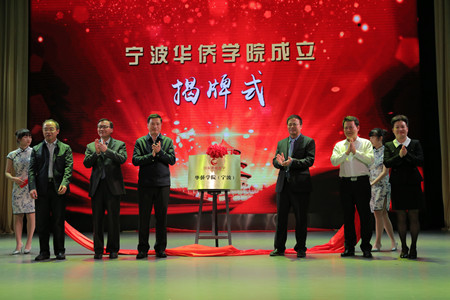The critical period of the 13th Five-Year Plan is of decisive significance to realise the first centenary goal of the Communist Party of China, that is, “to build a moderately prosperous society in all aspects”; to accomplish China’s three strategic objectives of education, i.e., “to basically modernise education, to basically shape a learning society, and to become a nation with significant human resources”; and to build the OUC into a new type of university, a high-level open university with Chinese characteristics, and an important pillar of the learning society.
With the approval of the Ministry of Education (MOE), in 2012 the Open University of China (OUC) was built on the foundation of China Central Radio and TV University (CCRTVU) and was inaugurated in the Great Hall of the People in Beijing.
In order to cater to the lifelong learning demands of the whole country, it is necessary to expand lifelong learning channels, positively explore the construction of a credit bank, create the credit bank system model and "framework+standard", design the architecture for the Open University of China’s (OUC) credit bank system, and promote practical exploration.
The Open University of China (OUC) provides the general public with degree education services. It also attaches special importance to the educational needs of grassroots learners in rural, remote, and ethnic minority areas, offering degree and non-degree education services, undertaking social responsibility, and promoting educational equality.
The Experimental School of the Open University of China (OUC) has conducted positive exploration, reform, and innovation, and played a leading role in comprehensively advancing the “Six-Network Integration” learner development model and Internet-based reform of the management system and operation mechanism.
Providing a variety of educational services for all members of society is an important means of enhancing the quality of the Chinese people and making China a human resources power. It is also an important part of the construction of a lifelong education system and the formation of a learning-oriented society, and a significant responsibility shouldered by the Open University of China (OUC).
 On the afternoon of 25th October 2017, an inauguration ceremony for the first college to provide education services for overseas Chinese in Ningbo, Ningbo Huaqiao College, was held at May 1st Square. Yang Xiaotang, deputy party secretary of the Open University of China (OUC), Cen Guorong, party secretary of the Zhejiang Province Returned Overseas Chinese Federation (ROCF),Liang Qun, Ningbo Municipal Standing Committee member and director of the United Front Work Department, Li Chengshu, party secretary and chairman of Ningbo ROCF, Zhang Jianguo, deputy director of Ningbo Bureau of Education, and Weng Xuelian, president of Ningbo Radio and Television University (Ningbo RTVU) Community College, inaugurated Ningbo Huaqiao College.
On the afternoon of 25th October 2017, an inauguration ceremony for the first college to provide education services for overseas Chinese in Ningbo, Ningbo Huaqiao College, was held at May 1st Square. Yang Xiaotang, deputy party secretary of the Open University of China (OUC), Cen Guorong, party secretary of the Zhejiang Province Returned Overseas Chinese Federation (ROCF),Liang Qun, Ningbo Municipal Standing Committee member and director of the United Front Work Department, Li Chengshu, party secretary and chairman of Ningbo ROCF, Zhang Jianguo, deputy director of Ningbo Bureau of Education, and Weng Xuelian, president of Ningbo Radio and Television University (Ningbo RTVU) Community College, inaugurated Ningbo Huaqiao College.
"I have to work on the weekend, and my work has a rotating schedule. I often do not have time to attend class. Could you make the class schedule more flexible?"